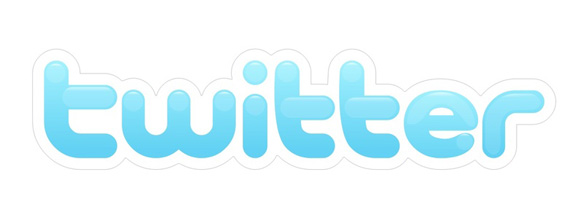Top 12 Film Industry Stories of 2009:
#4: The Twitter Effect
By David Mumpower
January 2, 2010
The key to Twitter is that it reduced the overhead of the process as much as possible. The genius/fatal flaw of the service, depending on your perspective, is that stray thoughts are celebrated. Those who are naturally verbose (like me) are limited by the 140 character limit. Conversely, the more laconically inclined have finally found their voice. The user must get in and get out, so to speak, with their comments. A full review is impossible. What has to happen is that people get to the fireworks factory as quickly as possible. No one is going to make comparisons to the later works of Akira Kurosawa on Twitter. This is not a place for Film School students to post key aspects of their dissertations. On Twitter, a movie rules or it sucks. The gray area has been eliminated. It is the most binary of movie review evaluators. For this reason, it's easy for a Twitter user to notice if 25 of their friends tweet that the same film sucks. The debate lies in whether they use this information.
Bruno is considered the movie that exemplified the Twitter Effect. Sacha Baron Cohen's follow-up to the shocking success of Borat, a $128.5 million winner, faced nasty buzz from the beginning. Its homoerotic subject matter was intended to torture exactly the same fratboys who had made his prior release a breakthrough box office winner. As would be expected of a de facto sequel to a blockbuster, Bruno's first day in release was a tremendous success. The title earned $14.4 million and appeared headed for a wonderful opening weekend. Instead, Bruno fell almost 40% on Saturday to $8.8 million and wound up with a weekend total of $30.6 million. Those of you who have been reading BOP for years realize that we have a calculation called the weekend multiplier that determines how well a title held during the Friday to Sunday period. Bruno's 2.13 is not the lowest ever or even the lowest for a high profile 2009 release. Still, it's a terrible number that ordinarily reflects a movie is going to have terrible holdover appeal. This was particularly true here as Bruno earned only $60.1 million domestically, a final box office multiplier of 1.96. The words EPIC FAIL spring to mind.
The trick to assessing Bruno's failure is where to place the blame. While social media certainly played a role in the quick, violent demise of the movie, the reality is that Cohen himself is mostly to blame. He made a movie that openly mocked its target audience. The last major Hollywood release to be so brazen was Freddy Got Fingered, which earned a whopping $14.2 million. Cohen was playing with the fire the instant he bit the hand that fed him. Is it fair to place the blame (or give the credit?) to Twitter for a movie that is simply the latest in a recent string of one-day wonder releases? That depends entirely upon how much you believe Bruno would have succeeded had it been unaffected by word of mouth.
Consider that only a few months prior, the re-make of Friday the 13th suffered roughly the same fate. That title debuted to $19.3 million on its opening Friday, only to sputter to $40.6 million the rest of the weekend and $65.0 million during its domestic run. Its first Friday represented a full 30% of its total box office. Bruno's first day accrued 24% of its total box office. Is word-of-mouth a factor in the failure of each titles after its opening day? Of course. Has social media and particularly Twitter increased the speed with which people can just on their cellphones and talk smack about a movie? Absolutely yes. Do people faithfully accept the opinions of their friends to the point that they ignore any release with heinous word of mouth? Absolutely not.
Continued:
1
2
3
4

![]() Tweet
Tweet
![]() Print this column
Print this column



